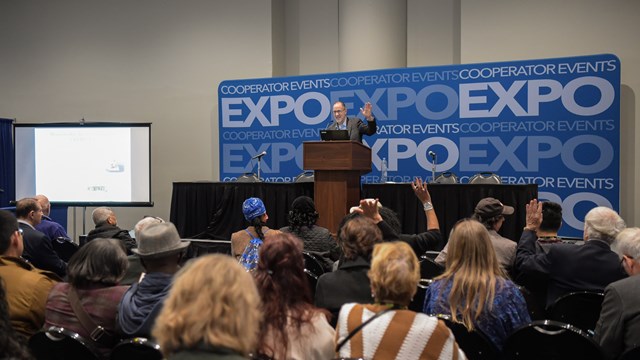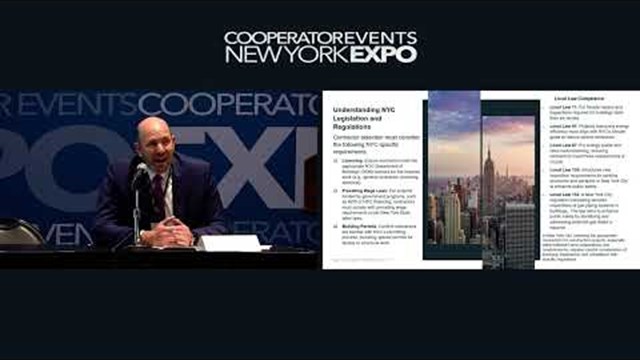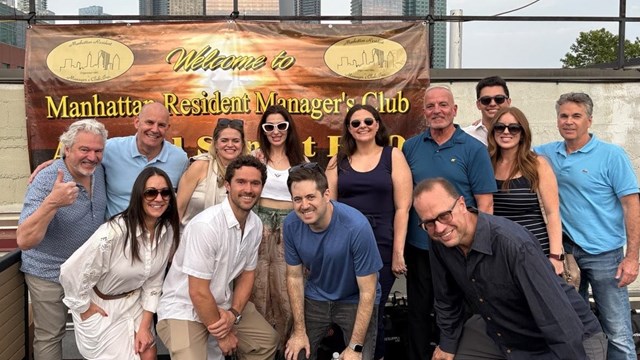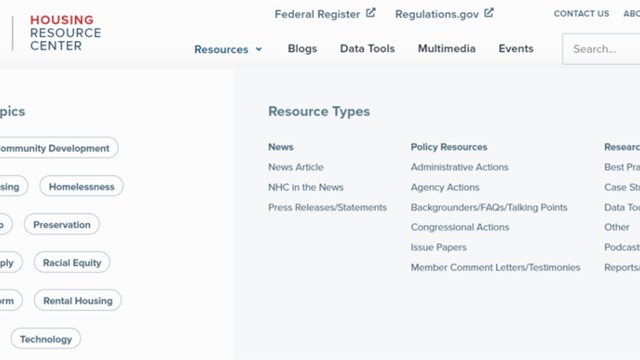Whether dealing with technology, administration or communication, on any given day property managers and managing agents are required to be jacks of all trades. And while some managers might actually have a practical background in plumbing or finance, it’s impossible for even the most seasoned professional to understand all aspects of running a multifamily property. That’s why engaging in continuing education is essential to maintaining a safe, successful, and financially solvent property.
More Than Just Paying Bills
“The role of property managers today continues to evolve beyond the typical operational responsibilities of ensuring common areas are clean or collecting rent,” says Tom Padilla, senior VP for the Manhattan-based FirstService Residential. “These professionals must also respond to a host of residents’ lifestyle demands, delivering on resort-style amenities, programming and services. In order to effectively serve an increasingly sophisticated client base, today’s practitioners must be well-versed in finance, law, energy, insurance, technology, construction, project management, customer service, and many other areas.”
Peter Grech, president of the New York Superintendents Technical Association (NYSTA), says there are many educational options offered to property managers and board members in and around New York City.
“There are formal avenues, such as NYU and it school of real estate, which also offers management courses,” says Grech. “And there are real estate institutions, such as the Building Owners and Managers Association (BOMA) and there is the Institute of Real Estate Management (IREM).” Grech adds that both BOMA and IREM have certification courses for property managers and superintendents.
“These courses aren’t required [by law], but they are desirable,” says Grech. “What you can learn from these courses depends on what you already know. These courses are more so for professionalism; to be refined and polished. Property managers learn most of what they know hands-on, in the field.”
NYSTA, which has approximately 140 members all across the city, offers a number of courses on a semi-annual basis. These include HVAC Systems Operations and Maintenance, Building Operations, Building Management, Building Structure and Building Safety and Health Management, among others.
For his part, Grech says, “I believe that classes on how the equipment in your building works are more important than any other courses. Once a manager understands how the building operates, he [or she] is way ahead.”
New York Centric Education
While BOMA and IREM are acknowledged educational institutions in the industry, they are national organizations with regional chapters. A city as diverse and progressive as New York is home to its own educational forums as well, such as the aforementioned NYSTA, and the New York Association of Realty Managers (NYARM).
“The New York Association of Realty Managers offers a property management certification known as the ‘NY Accredited Realty Manager’ and it is recognized by both New York City and New York State,” explains Margie Russell, who has served as NYARM’s Executive Director since 2002. “We are not a trade school teaching entry level property management to individuals looking to become employed in the industry – rather, we serve property and building managers who are employed or experienced in the property management field.”
Depending on the certificate a given professional is pursuing, it could take anywhere from six to 40 weeks to complete a program, depending on experience level and how diligently the person works, notes Russell. The certification process is in various disciplines including (but certainly not limited to) ethics, fundamentals of financial management, the law and the courts, people skills, local laws and administrative codes, managing building systems, and expenditure budgeting.
“Certification credits are earned both for work experience and education, so the program length is adjusted and customized to the background and experience of the individual according to their previous accrued credit,” says Russell. “Some coursework can be completed directly through NYARM, and for certain subjects we refer the applicant to other organizations that specialize in a specific discipline.”
Other Options
Some larger property management firms also offer continuing education to their managers. The FirstService Residential School of Professional Development offers its associates a comprehensive course curriculum, explains Padilla—from specialized property management classes to analyzing financial statements.
“Managers and building staff also gain hands-on experience in the company’s Learning Center, where they receive practical training and certification in building systems and operations,” says Padilla. “We recently added ‘FirstClass,’ our online learning platform, to our library of education tools.” He explains that FirstClass provides associates with a variety of resources, including the noted online courses, books, videos and webinars to drive an associate’s professional development. “Nearly a third of the entire company’s associates are registered in the program, which is updated regularly and can be easily accessed via mobile devices and desktops.”
Organizations and agencies sometimes team up to offer enrichment programs as well. This past spring, the New York City Mayor’s Office of Sustainability, in collaboration with the Real Estate Board of New York (REBNY), BOMA and the Urban Green Council launched a program called Sustainability Boot Camp, explains REBNY’s Assistant Vice President of Communication, Nicole Chin-Lyn.
According to REBNY, the program supports an energy efficiency and sustainability training program for New York building managers, superintendents, operators and engineers. “Sustainability Boot Camp is an example of the continued work New York City’s real estate professionals and leaders are doing to ensure that New York remains a leader in terms of sustainability efforts, and transform the environment to be better suited for the future.”
To keep pace with industry advancements, individual management firms may offer their agents anything from audio books, videos and live instructor-led webinars designed to help advance their respective skills, improve service delivery and achieve personal career goals. Different companies may or may not make participation in such programs mandatory, and topics could be anything from ethics and disciplinary action to labor relations, façade inspections, OSHA training, cooling tower/boiler essentials and heat timer controls.
Continuing Education Benefits
Continuing education, Padilla contends, is necessary to handle the numerous challenges and complex demands of managing multifamily properties in New York City. When the City’s Department of Buildings (DOB) launched its Façade Inspection Safety Program (FISP), for example, a DOB Assistant Commissioner visited FirstService Residential to educate company managers on the new balcony and handrail codes.
“We know it’s equally as important for building personnel to have a thorough understanding of a property’s equipment and how to manage its systems,” says Padilla. “Benefits include enhancements to safety, efficiency, system operations and resident comfort, as well as a reduction in maintenance costs and fewer service disruptions. “More than 200 of our staffers recently received Occupational Safety and Health Administration (OSHA) certification after attending a hazard prevention course.”
According to Russell, whether a union member or an employee, the majority of continuing education courses are paid for in full or part by the union or the manager’s company. And from time to time, she says that board members will elect to take courses to stay in step with industry advancements. “These courses are for those who are actively engaged in the industry. It’s not to take one course and then wait five years to continue with another course—it doesn’t work that way,” she says. “These courses are designed to help you maintain your muscle.”
In Padilla’s view, professional development and advancement courses are a vital role to staying current with the ever-changing demands of residents. To this end, he says that property managers must be fluid and willing to update methods, learn new tactics and expand industry knowledge in order to deliver on resident expectations and provide a holistic living experience.
“While individuals come to the company with a variety of backgrounds, skills and experience, they comprise one unified team of professionals with a passion and commitment to add value and enhance their clients’ lifestyles,” says Padilla. “By encouraging continued education amongst associates, the company is rewarded with a strong, capable and experienced staff that can drive company success from the ground up.”
Buying In
In some instances, seasoned property managers and managing agents may look at continuing education as a time sink. They feel that after years – even decades - on the job, they are proficient and don’t need to spend eight hours on a Saturday in a classroom. While this may be true to a certain extent, there is value in older dogs learning new tricks.
By participating in continuing education, “Managers can expect to gain a deeper understanding for all aspects of community management including legal and insurance issues, energy management, finance, technology implementation, condo/co-op/rental management, and many more,” says Padilla.
Of course, in addition to the time commitment involved, there are costs associated with continuing education. While managers might not have to pay directly out-of-pocket for some courses or workshops, someone must foot the bill. For example, NYARM’s annual membership dues for individual real estate, property, building managers or superintendents is $250; for a management company, owner or entire building, annual dues are $700; for associate vendors, contractors and professionals, membership is $1,100 per year.
At NYSTA, members get discounted rates on courses. A sprinkler or stand pipe class, for example, costs $145 for nine hours of instruction. The Building Systems 101 course, among the most popular class and offered two to three times per year, is 33 hours in duration and costs members $275.
“We have had board members take the Building Systems class too, because board members also want to learn more about their buildings,” says Grech. “In this class we teach every aspect of the building—all the equipment, how it works and how to maintain the equipment.”
“For those looking to progress their careers with the help of continued education programs, you get what you give. Investing the time and resources is necessary to take the next step, we are committed to investing in our employees to lead them to success,” says Padilla. “Associates can enroll in learning platforms like FirstClass at any time, and customize their ongoing education to fit into their personal schedules.”
No matter how long you or your building’s manager have been on the job, in the dynamic world of property management, there’s always something new to learn. By staying abreast of the educational and professional enrichment opportunities available, you (or your community’s manager) can make sure you’ve got the newest, sharpest tools at your disposal to make your own job easier and your properties run more smoothly.
WB King is a freelance writer and reporter for The Cooperator.










Leave a Comment